Snarky Puppy, the large, high-energy band founded by bassist Michael League, has a new album out titled Empire Central. Recorded in Dallas, the band’s original stomping grounds, before a live, studio audience (donning ATH-M20x headphones, we should add), the album captures the electric spontaneity that has made this genre-skirting band a music and internet sensation. We sat down recently with League and engineer Nic Hard to discuss the making of this record, see how Audio-Technica mics and headphones helped them achieve the sound they wanted, and learn how the band transitions from studio to stage.
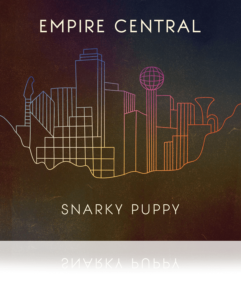
Nic Hard – Audio Engineer
Michael League – Founder, Bassist

A-T: The album features compositions by you and several other band members. Can you tell us a bit about how you bring compositions to life in the studio? Are they rehearsed beforehand? Do the pieces change much from page to performance? How much do band members improvise?
Michael: To begin with, the music never lives on the page. It actually doesn't get written down until after the album is done! We learn the songs by ear, using audio demos in Logic that are uploaded to a Dropbox folder. We rehearsed two new songs per day over seven days and added two songs during the eight nights of recording. The goal in rehearsal is to play the songs exactly as the composer intended. Once we've achieved that, the doors open for each member of the band to give feedback and start changing things. This part of the process is the most essential, in my opinion. It's when the band starts to sound like Snarky Puppy.
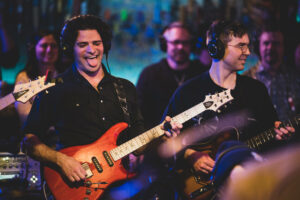
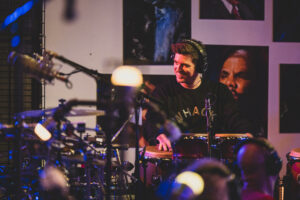
A-T: The late jazz and funk keyboardist Bernard Wright, whom you have identified as a godfather-like figure, plays on this album, in what, sadly, would be his final recorded performance. What impact did he have on you and the band and what did it mean to have him at these sessions?
Michael: It wouldn't be the same record without him. In addition to the incredible performance that he gave on 'Take It!' simply his presence in the room as a listener inspired us. He was my personal mentor and a mentor to several members of the band for years, and I don't think any single musician has had a greater impact on the ethos and direction of the band than Bernard Wright.
A-T: As alluded to above, Snarky Puppy has recorded – and become known for – many live-in-studio records and videos with audience members listening through headphones. What does the band gain from recording in this manner? How does it differ from playing to a conventional audience?
Michael: For us, it's the perfect combination of live show energy and high-quality sound recording. You play differently when there are people in front of you – especially when they are one foot away! It takes you out of the it-has-to-be-perfect recording mentality and puts the focus more on communication. I love it.
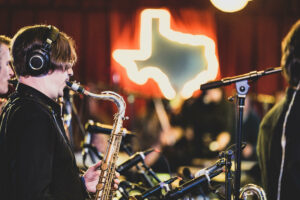
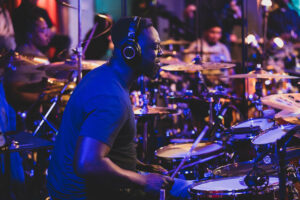
A-T: In October, Snarky Puppy embarks on a worldwide tour. How does the music evolve once you take it on the road, from night to night and over the course of several months?
Michael: We never play the same setlist, so that inherently changes the energy of the show from night to night. Additionally, we try to never play a song the same way twice. Sometimes I might start a certain song, and the next night it will be the horn section. We don't plan it beforehand – sometimes it just happens naturally, or we'll call things out on stage. From the beginning to the end of the tour, some songs become almost unrecognizable!
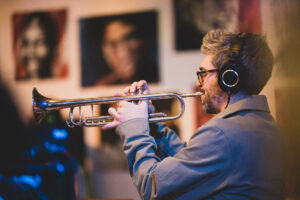
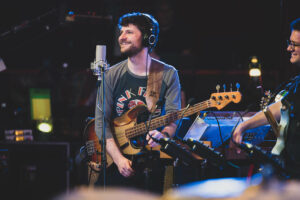
A-T: What else would you like our readers to know about the new Snarky Puppy album, and how can they keep up with the band?
Michael: Only that it felt amazing to come home and make music in the place where it all started. I hope that the viewers and listeners feel that. We try to stay up on our social media networks, so that's a good place to start. But our website is probably the most consistent place: www.snarkypuppy.com.
